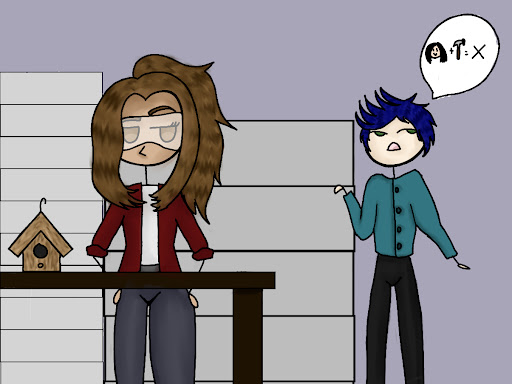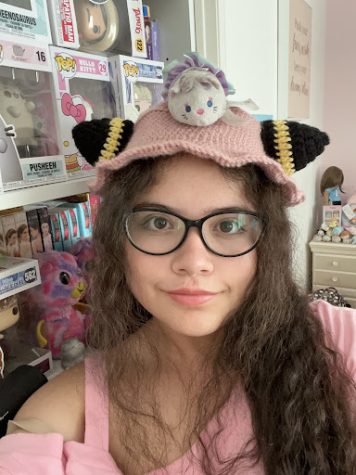What’s With the Automatic Hate Against Anything Teen Girls Love?

Picture by Ashlee Guardado
From One Direction to BTS, to makeup and even the color “pink,” anything – and that means anything – with a primarily teenage girl demographic is mocked by the masses. It’s as if any merit disappears simply because a thirteen-year-old girl fangirled over it. The culture around hating the interests of young girls stems from misogyny and the crusade against femininity, and unfortunately, not only men hate on girls; internalized misogyny leads grown women to join in on the hate.
Often, there is a sense of entitlement to center all media around and for the male gender. I mean, what’s wrong with films or songs being targeted toward girls when male-centered works are abundant? An intense wave of hatred against films like Turning Red – perhaps not only coincidentally targeted towards teen girls – inevitably follows the release of female-centered media. They’re labeled “quirky,” “obnoxious,” and unnecessary. People groan even though there’s still a vast sea of stereotypical movies centered around male heroes with the token female love interest.
Not to mention, “that’s girly” is an insult thrown around as if being feminine is a slight against humanity. But in reality, there is no such thing as being “too feminine,” nor is there anything wrong with being a stereotypical girly girl. People need to realize that how a girl chooses to express herself is not an indicator of her capabilities. A girl who likes to paint her nails is not frivolous and one-dimensional, and a girl who hits the soccer field every evening is not superior.
We can see this toxic mentality through the “I’m not like other girls” cultural phenomenon that’s grown popular as young girls pursue the futile goal of being accepted by society. Female teens who are “not like other girls” try to distance themselves from femininity by saying they hate pink, don’t care about their looks, and are anything but shallow and dramatic. In seeking to feel special, they look down on other girls for their feminine interests. It’s hard to blame teen girls for buying into the phenomenon; society caters to the standards of men and women who think teen girls are nothing but superficial.
Honestly, no matter what a teen girl does to be accepted by society, it’s always a Catch-22 for them. If they put on makeup, they’re superficial. If they don’t, they’re lazy and don’t put any effort into themselves. Whatever they do, whatever they like, they are confined to a box of expectations preventing them from exploring their interests.
And when a girl likes something considered “masculine” (and thereby exempt from the dreaded adjective of femininity), such as video games, sports, and rock bands, some people scoff in disbelief and ask, “really?” They quiz them and ask them to list all the bands’ albums or tell them to describe some obscure fact only a superfan could know. If a girl gets something wrong or rejects the unnecessary quiz show, she’s labeled a “poser” who’s only seeking male attention. On the other hand, guys are rarely forced to prove their knowledge because they are the default.
We perpetuate a culture promoting low self-esteem and embarrassment by shaming people for what they like or gatekeeping them from specific topics. Teen girls have to survive the hectic time of puberty and high school, and they are thrust into the expectation of acting mature long before teen boys are. “Boys will be boys,” so why can’t girls be girls? Why do we accuse girls of being fake before assuming they are just themselves?
Being of the female gender doesn’t exempt someone from being wrong. (No one’s gender is capable of automatically making them “right.”) And so, similarly, why should a girl be ridiculed, criticized, and attacked simply for voicing her opinion or saying she likes something? I don’t think there’s anything mature about shaming an individual – male, female, young, or old – to the point where they feel too embarrassed to be open about their interests.
Unapologetically allow yourself to explore who you are and realize that you shouldn’t prioritize acceptance in a world with ever-changing expectations.

Hello again, Quartz Hill! My name is Tiffani Pe, and I’ll be serving as an assistant Copy Editor for the QHHS Ubiquity. Being a senior IB student with...

Hey! I am Ashlee Guardado, and this is my final year in Journalism. I am a senior and have been an honors/AP student since middle school. I’m an assistant...







